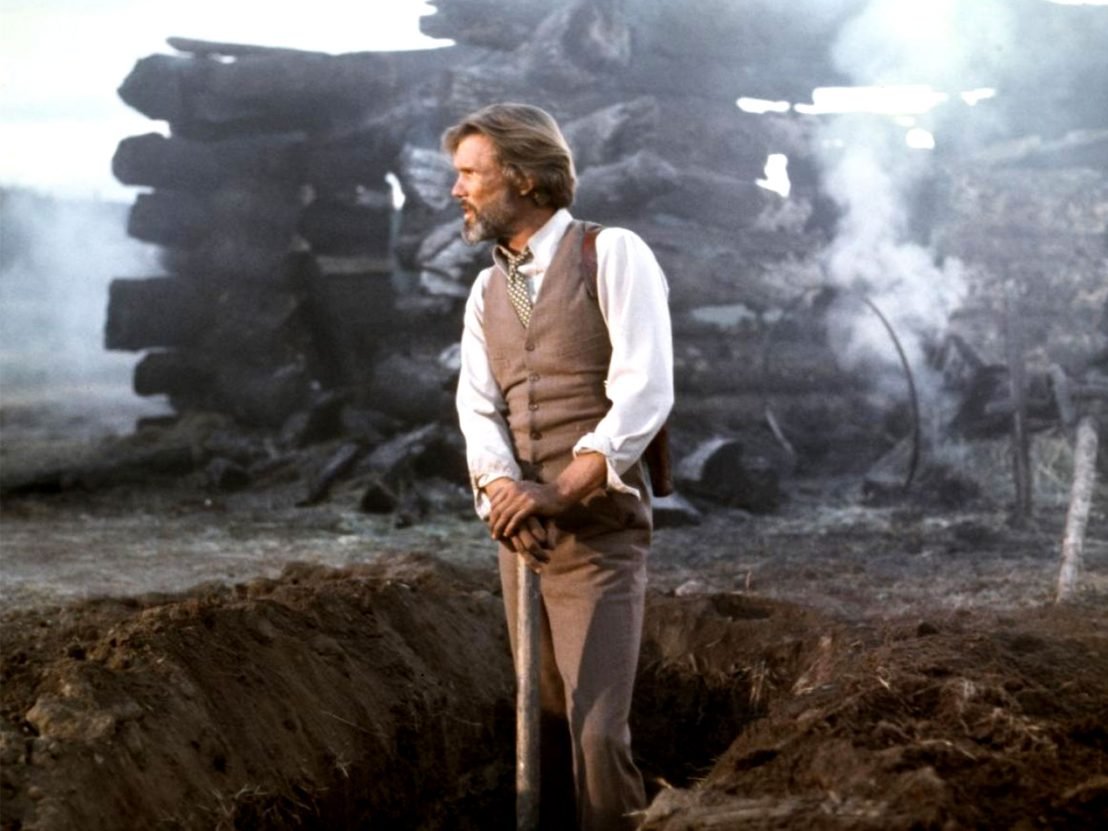Cimino: The Deer Hunter, Heaven’s Gate, and the Price of a Vision (Preview)
by Charles Elton. New York: Harry N. Abrams, 2022. 348 pp., illus. Hardcover: $28.00, Paperback: $18.00, and E-book: $23.32.
Reviewed by Thom R. Delapa
In a parallel Hollywood universe a long time ago, one man might have saved writer-director Michael Cimino from what Tennessee Williams wryly called the “catastrophe of success”—and perhaps with him the fortunes and future of the storied United Artists studio. The man’s name? None other than the screen’s one-time Man with No Name: Clint Eastwood.
I know what you’re thinking, reader, but look (or squint) at it this way. Seven years before his 1980 Heaven’s Gate apocalypse, Cimino nimbly directed his script of Thunderbolt and Lightfoot (1974) as a vehicle for Eastwood through the latter’s Malpaso production company. Tightfisted with dollars on his sets, Eastwood usually refused when Cimino would ask for more than a few takes on any shot. Now jump cut to the neo-Napoleonic Cimino staging his own private Waterloo in Idaho and Montana, shooting upward of fifty takes per shot on his epic Western Heaven’s Gate—an ungodly one and a half million feet in all—that would ultimately send The Deer Hunter’s Oscar trophy-winner recoiling down the road to Hollywood perdition.
Clint Eastwood and Jeff Bridges as the title characters in Thunderbolt and Lightfoot.
You won’t find such pie-in-the-sky Big Sky speculation in Charles Elton’s Cimino: The Deer Hunter, Heaven’s Gate, and the Price of a Vision, a highly readable, though dubiously revisionist review of one of Hollywood’s most meteoric directorial careers this side of Orson Welles and Erich Von Stroheim. The devil is truly in the details when it comes to the curious case (professional and personal) of one Michael Antonio Cimino, whose fall from grace was so seismic that the bold, increasingly profligate 1970s New Hollywood “auteur” era soon toppled around him.
So goes the conventional lore, right? Ergo, Cimino goes full-tilt Kurtz upriver while helming Heaven’s Gate for United Artists, this after his Deer Hunter bagged five 1978 Oscars (including Best Picture and Best Director). A gold-digging UA, in disarray after its longtime execs fled to form Orion following the studio’s sale to TransAmerica, gives carte blanche to a red-hot director, who: a) gets a $12 million budget that will balloon up to a Heavens-to-Betsy $40 million; b) insists on casting a little-known French actress named Isabelle Huppert in a lead role, dismissing the UA suits’ knocks on her looks (“face of a potato”) and her English (negligible, mon Dieu); c) herds his cast (including 2,500 extras) and crew to what will become six months of gnarly location shooting, where the painstakingly recreated sets include a circa 1889 Casper, Wyoming, and a fictional immigrant town furnished with a roller-skating rink; and d) closes the production to the press and stonewalls UA brass, while hiring his wartime consigliere/confidante Joann Carelli as producer, dismissing the UA suits’ knocks on her relevant experience (also negligible).
Kris Kristofferson in Heaven’s Gate.
In short, the last judgment on Heaven’s Gate has long been that it’s to post-1970s U.S. feature filmmaking what Nixon’s Watergate conspiracy was to 1970s Washington politics—a watershed catastrophe that soaked the entire system. Starting with his title, Elton ambitiously, near evangelically, raises the minority view. While gauging Cimino’s culpability in a career awash with deceptions, deflections, and stratospheric ego trips, Elton nonetheless argues that Hollywood and a diabolical national press did the dude wrong. In a breezy three-hundred-odd pages, Elton—a British literary agent, writer, and TV producer—takes us on a revenge tour of the diminutive (five feet five inches) director’s hits, home runs, and tape-measure errors, seeking to redeem his artistic reputation from the forty-year stigma of his cinematic sins.
You may not buy Elton’s reclamation project, but you have to admire his voice-in-the-wilderness chutzpah, like the historian determined to champion Richard Nixon’s presidency by overlooking his high crimes and Tricky Dick misdemeanors in deference to his state visit to China. As dogged as Elton is in reappraising Cimino’s roller-coaster career, he also cracks open a door into his subject’s private life, a virtual camera obscura that the late Cimino (he died in 2016) guarded with lock and key…
To read the complete review, click here so that you may order either a subscription to begin with our Winter 2022 issue, or order a copy of this issue.
Copyright © 2022 by Cineaste Magazine
Cineaste, Vol. XLVIII, No. 1


